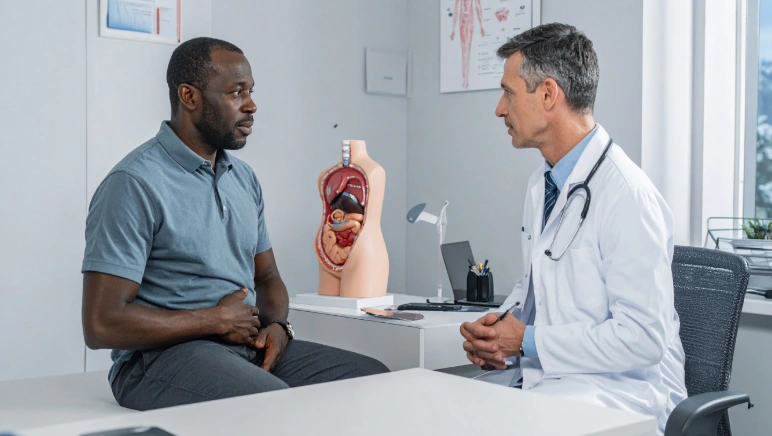
There are different types of hernias, each with its own symptoms. It is possible for some hernias to cause a feeling of pressure, discomfort, or burning in the affected area, while others may not be noticeable at all in the early stages.
The hernias that do not cause any symptoms are referred to as silent or painless hernias. However, it does not mean a hernia should be ignored just because it does not cause symptoms. Below, we take a look at some common signs and symptoms of hernia followed by treatment options.
Signs You May Have a Hernia
Hernias in the abdomen or groin can produce a noticeable lump or bulge. This bulge is noticeable more when you engage in any sort of physical activity like laughing, crying, coughing, or walking. It can disappear when you are lying down.
More symptoms of a hernia include:
- Pain and Discomfort
Hernias can cause pain and discomfort even if there is no bulge in your abdomen. You might feel this pain when lifting heavy objects, coughing, or engaging in other strenuous activities.
It is also possible for hernias to cause tightness in the abdomen or the groin area. Rare types of hernias, like femoral or obturator hernias, where a part of the bowel pushes into the groin or upper leg, aren't likely to show up as bulges. In this case, you might want to consider getting a CT scan done to determine if you have a hernia.
- Feeling Full
One of the most easily overlooked hernia symptoms is feeling full. It occurs most commonly when you have an inguinal hernia and makes you feel as if you have just had a heavy dinner. In most cases, the patients are likely to feel some sort of pain with it. If you often feel bloated or heavy and you haven't overeaten, get checked for a hernia.
- Heartburn
Hiatal hernia has different symptoms than most of the other types. It can cause discomfort in the chest and heartburn.
This is because, during a hiatal hernia, a part of the stomach bulges through the diaphragm. This can cause stomach acid to travel into the esophagus, resulting in heartburn.
- Constipation
There are times when constipation can cause hernias but it can be a symptom of the problem as well. Hernias can cause blockages in the intestines, causing waste to have difficulty moving through the system. The result can be constipation, abdominal pain, and bloating.
- Fever
Hernias do not directly cause fever, but fever can indicate something much more serious. Fever may be an indication of a strangulated hernia that is not getting enough blood flow, and you should seek medical attention as soon as possible. You are likely to experience fever with one or more symptoms that we have discussed in this guide.
I Might Have a Hernia. What Should Be My Next Step?
Hernias cannot be treated at home. If you have a hernia in the early stages, your doctor might recommend some lifestyle changes and exercises you can perform to delay the surgery, but undergoing surgery is the ultimate solution.
To determine whether you have a hernia, see a doctor. Since this will be a physical examination, the doctor will ask you to cough and bear down, and gently press on areas of concern to detect lumps or bulges. In some cases, the doctor may require additional imaging tests such as an ultrasound or a CT scan.
In the event that a diagnosis has been confirmed, your doctor will discuss your treatment options with you, such as observation or surgery. Surgery is the most effective hernia treatment, and there are two options available; open repair hernia surgery or laparoscopy.
Consult with your doctor about your options before making a decision or get in touch with our experts at Hernia Innovations. If you have any questions, we will answer them and offer you the most suitable options. Contact us today for a hernia evaluation appointment by sending us a message or calling us at (925) 940-1025.
Fresh Insights from Leading Hernia Specialists
Stay informed with expert blogs on hernia symptoms, treatment options, prevention strategies, and recovery tips.






.webp)
